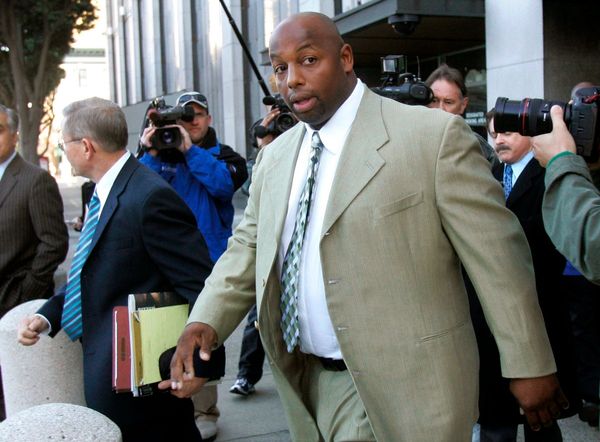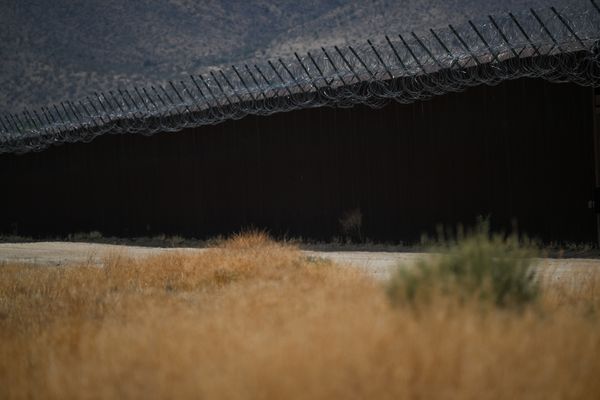Pairing inexperienced police officers with more senior staff and strengthening the relationship between police and the Aboriginal community have been recommended by Western Australia's coroner in a report into the tragic drowning of two boys in the Swan River three years ago.
The two boys, referred to as Master Drage and Master Simpson, were among a group of five teenagers who had met and travelled to Maylands on September 10, 2018 where they had burgled a home, a coronial inquest into their deaths revealed in March.
When the boys saw a police car in the area they started running. One split off from the group, while the others ran towards and entered the river, pursued by two plain-clothes officers on foot.
Post-mortem examinations by forensic pathologists found the 16-year-old and 17-year-old drowned in the river as they tried to flee police. The third boy had abandoned the river crossing while the fourth had reached the other side in Rivervale.
The case had sparked scrutiny over the actions of the police officers but Coroner Urquhart said the two police officers who chased the group had acted appropriately at all times.
In his report on Tuesday he issued recommendations for police changes, describing the actions of the boys as "dangerous and very risky".
"Given the weather conditions and the width of the river, this was a dangerous and very risky undertaking to attempt", Coroner Philip Urquhart said.
But he said he was satisfied the teenagers would not have been aware of the treacherous conditions of the river when they decided to attempt to swim across it.
The report comes after a coronial inquest into the deaths of the boys in March this year.
Police changes recommended
One of the officers who pursued the teenagers was still on probation and the other was just five months from finishing their probationary period.
Coroner Urquhart has recommended the WA Police Force introduce a policy that whenever possible, probationary constables carrying out operational duties be partnered with a police officer with a post-probationary operational experience of at least one year.
He also called for all police officers assigned to operational duties in a defined area to receive an induction upon being posted to the area for the first time.
The induction should include an identification of its boundaries and significant physical, demographic, cultural and socio-economic features of that area.
A third recommendation was made to enhance and strengthen relationships between police and Aboriginal people.
Coroner Urquhart said newly promoted first-class constables and senior constables at metropolitan and regional police stations should undertake immersive, face-to-face cultural awareness training.
Inquest told details of chase
The court was told the river was estimated to be more than 100 metres wide at the point the boys went in.
One boy, known as Child P, had stopped in the river at waist height when he realised the water was very cold, and another boy, known as Child N, made it to the other side at Rivervale.
But Master Drage and Master Simpson did not emerge from the river.
The court was told the pair had been affected by cannabis.
A witness who watched from a nearby balcony told the inquest police had done all they could to save the teenagers.
Officer unable to recall boy's call for help
The inquest also heard from the officers who had been pursuing the group and two Tactical Response Group (TRG) officers who entered the water in a bid to save them.
The TRG officers, who happened to be in the area, were the first to go after them into the water, where the current was described as "very strong" and conditions "very challenging".
WA Police officer Ella Cutler was 20 years old and still on probation when she and her partner Lindsay Jeffree were flagged down by a member of the public while they were patrolling the Maylands area.
The officers were alerted to a group of boys jumping fences in the area, and they stopped at a home where there was evidence of trespass.
When they saw the group of boys running, she said it raised her suspicions, and the officers made the decision to pursue them on foot.
Ms Cutler told the court she did not know the area well and was unaware the river was there, although she said she did not believe it would have changed their actions.
She said she was focused on the boy who had stopped and was standing in the river, and said she did not recall him asking her to help the others.
She said her training had not involved anything specific about swimming or water rescues.
The TRG officers later told the inquest conditions in the water on the day were the worst they had experienced, with one saying the current "was ridiculously strong".
Both men received bravery awards for their actions that day, and said they did not think there was anything else the plain-clothes officers could have done.







